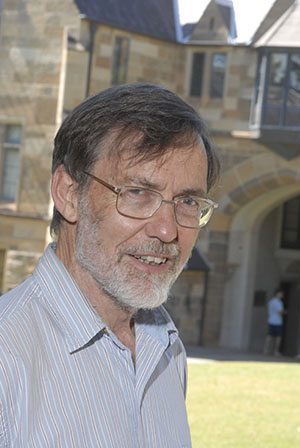News from the Editor's Desk - March 2016
Porter Prize
Five poems have been shortlisted in the 2016 Peter Porter Poetry Prize. The poets are Dan Disney, Anne Elvey, Amanda Joy, Lisa Gluskin Stonestreet, and Campbell Thomson; their poems can be read here. The judges on this occasion were Luke Davies, Lisa Gorton, and Kate Middleton.
Join us at our studio in Boyd Community Hub on Wednesday, 9 March (6 pm), when the poets will introduce and read their works, followed by the announcement of the overall winner, who will receive $5,000 and an Arthur Boyd print. This is a free event, but reservations are essential.
These ceremonies always commence with a series of readings of poems written by Peter Porter (1929–2010). This year our readers – Judith Bishop (winner in 2006 and 2011), Morag Fraser, Lisa Gorton, and Peter Rose among them – may choose to dip into the new collection of late Porter poems: Chorale at the Crossing (Picador, $24.99 pb).
 Peter Porter
Peter Porter
States of Poetry
ABR's poetry content continues to expand. To complement the Porter Prize, monthly poems and reviews, and our Poem of the Week podcast, we are delighted to introduce States of Poetry, the first federally arranged poetry anthology project to be published in this country. With handsome support from Copyright Agency's Cultural Fund, each year we will publish individual state and territory anthologies intended to highlight the quality and diversity of contemporary Australian poetry. The full States of Poetry anthologies will appear free of charge on our website, with poems, biographies, recordings, and introductions from our state editors. Each month we will publish a selection in the print edition. South Australia is the mini-anthology to be printed in the print edition while the first full anthology to be published online is ACT, which you can find here.
Renting a guillotine
Harper's Magazine carried, in its January issue, a list of queries submitted to the New York Public Library's Reference and Research Services between 1940 and 1989. Here are some examples: 'Where can I rent a guillotine?'; 'Who built the English Channel?'; 'Is it proper to go alone to Reno to get a divorce?'; 'Is this where I ask questions I can't get answers to?'
Whenever we advertise one of our literary prizes, we feel for those librarians. Entrants pose the curliest questions. A few instances will serve. 'Does a short story have to be fiction?' 'What is fiction?' 'Do the spaces in my poem count as lines?' 'Can I enter online but send my story by post?' 'If I published my essay online but no one read it, does that count as publication?'
With the Jolley Prize open until 11 April, we look forward to fielding lots of metaphysically elevated if possibly unanswerable questions.
Gwen Harwood
 Gwen Harwood
Gwen Harwood
A footnote to our December lament about the paucity of Australian literary biographies. Brandl & Schlesinger, that enterprising Sydney publisher, has issued Gwen Harwood's Idle Talk: Letters 1960–1964, edited by Alison Hoddinott, the recipient, with her husband, of these brilliant missives. No one wrote like Harwood. Her account in 1961 of the furore that followed the Bulletin's unwitting publication of her two famous acrostic sonnets (SO LONG BULLETIN; and FUCK ALL EDITORS) contains some ferocious comic writing quite worthy of Evelyn Waugh, none better than Harwood's transcript of a conversation with the Bulletin's embattled Desmond O'Grady.
Only three letters survive from 1960. Alison Hoddinott records a late conversation with Harwood in 1995 who became annoyed when her friend confessed that she had burned the other letters, at Harwood's request. 'You shouldn't have taken any notice of me,' Harwood replied. 'Writers always say that. They don't mean it.'
Quite right: if authors really want to destroy their private papers, they stoke the incinerator, like Henry James.
Her majesty's pleasure
Prime ministerial post-mortems can be absorbing, and Aaron Patrick's Credlin & Co.: How the Abbott Government Destroyed Itself (Black Inc., $29.99 pb) is entertaining. The author repeats one claim that, to our surprise, didn't gain much traction in the weeks after Abbott's defeat. Greg Sheridan, reliably close to Abbott, suggested in The Australian that Abbott gave Philip his knighthood 'because he learned the Queen wanted her husband to have one'.
The British monarchy can be accused of many things, but in this case Aaron Patrick's reading seems plausible: 'Sheridan's article could not be verified: Buckingham Palace would never answer a question about the Queen's wishes for her husband. The article sounded like after-the-fact justification.' Of which we can expect to hear much more this year, especially from the Malcontents.
Aaron Patrick, like many scribblers, chooses to dedicate the book to the 'love of his life'; but in an Author's Note he also remembers Roger East, the journalist who was murdered by Indonesian troops in Dili in 1975. Royalties from Credlin & Co. will be donated to a fund honouring the Balibo Five, who perished shortly before East did. Impressively, this fund will help train East Timorese journalists in Australia.
ABR RAFT Fellowship
 Alan Atkinson
Alan Atkinson
Interest was high in the inaugural ABR RAFT Fellowship, which examines the role and significance of religion in society and culture. Alan Atkinson was chosen from a large and impressive field. He is Emeritus Professor of History, University of New England, and Senior Tutor and Fellow at St Paul's College, and Honorary Professor, University of Sydney. Professor Atkinson, an occasional contributor to ABR, is the author of several award-winning books, including his three-volume magnum opus, The Europeans in Australia.
Alan Atkinson's proposal began, timelily, 'Can a nation, Australia especially, make an effort, just to be good?' We can't wait to publish his Fellowship article, whose working title is 'How Do We Live with Ourselves? The Australian National Conscience'.
We thank everyone who applied for the ABR RAFT Fellowship, and hope to present a second one in 2017.
ABR Laureate's Fellow
 Michael Aiken
Michael Aiken
ABR Laureate David Malouf has chosen Sydney poet Michael Aiken as the inaugural ABR Laureate's Fellow. These Fellowships are intended to advance the work of a younger writer admired by the Laureate. Michael Aiken, who lives and works in Sydney, receives $5,000. He was born in western Sydney and raised on the New South Wales central coast. Michael Aiken spent thirteen years working in the security industry. His book A Vicious Example (Grand Parade, 2014) was shortlisted for the 2015 Kenneth Slessor Prize. His poetry and prose have appeared in various journals in Australia and overseas. Michael is working on a narrative poem, part of which ABR will publish in due course.
Hazel Rowley Fellowship
Shannon Burns's ABR Fellowship profile of Gerald Murnane ('The Scientist of His Own Experience', ABR, August 2015) was admired by many, including Text Publishing, which has commissioned him to write Murnane's biography. Shannon Burns has also been shortlisted for the 2016 Hazel Rowley Literary Fellowship. He is one of nine biographers on the shortlist, and the competition is keen. Others include Jacqueline Kent (for a biography of Robert Helpmann), Jeff Sparrow (Paul Robeson), and Philip Dwyer (Napoleon Bonaparte).
The Rowley Fellowship, now in its fifth year and worth $10,000, commemorates the life and work of one of Australia's finest biographers, Hazel Rowley (1951–2011). The intention is to encourage travel and risk-taking – of which Hazel would have emphatically approved. The winner will be announced on 9 March.
Marathons and Prepositions
Few editors write books (they're not meant to have time for such frivolities). Even fewer run marathons (or break into a jog, in our experience). Catriona Menzies-Pike – editor of the Sydney Review of Books – is an exception. Her first book, The Long Run, is described as 'a personal and cultural memoir about why women run' (Affirm Press, $29.99 pb). One of Menzies-Pike's reasons for doing so was the death of her parents in a light plane crash when she was twenty. Those early losses are described in dignified, telling prose, with a moving description of revisiting the family home in Albury soon after the accident, only to find it barred.
The editor in Catriona Menzies-Pike is never sedentary for long: 'To map the meaning of any kind of run, we need to pay attention to the prepositions.'
Vale John Hirst
Distinguished historian and author John Hirst has died, aged seventy-three. For almost four decades he taught history at La Trobe University, always eschewing a Chair and preferring to remain Reader in History. His prose was impeccable, his scholarship highly influential. ACU Vice-Chancellor Greg Craven has described him as 'one of the greatest historians this country has had'.
John Hirst's frequent contributions to ABR began with the current Editor's first issue in 2001. The pair had worked on several books for Oxford University Press in the 1990s, including A Republican Manifesto in 1994 (Hirst was a founding convenor of the ARM in Victoria). With Graeme Davison and Stuart Macintyre, Dr Hirst co-edited The Oxford Companion to Australian History (1998). After retiring from La Trobe University in 2006, he continued to publish books aimed at an enquiring general audience. These included The Shortest History of Europe (2009) and Australian History in 7 Questions (2014).
The new Children's Laureate
 Leigh Hobbs (photograph by Sergion Fontana)
Leigh Hobbs (photograph by Sergion Fontana)
Bestselling author and illustrator Leigh Hobbs – creator of the inimitable characters Horrible Harriet, Mr Chicken, and Old Tom – has been named as the new Australian Children's Laureate for 2016–17, succeeding writer Jackie French. Hobbs intends to use his term 'to champion creative opportunities for children, and to highlight the essential role libraries play in nurturing our creative lives'.
The Australian Children's Laureate initiative was developed by the Australian Children's Literature Alliance with the aim of promoting the importance of reading, creativity, and story in the lives of young Australians.







Leave a comment
If you are an ABR subscriber, you will need to sign in to post a comment.
If you have forgotten your sign in details, or if you receive an error message when trying to submit your comment, please email your comment (and the name of the article to which it relates) to ABR Comments. We will review your comment and, subject to approval, we will post it under your name.
Please note that all comments must be approved by ABR and comply with our Terms & Conditions.